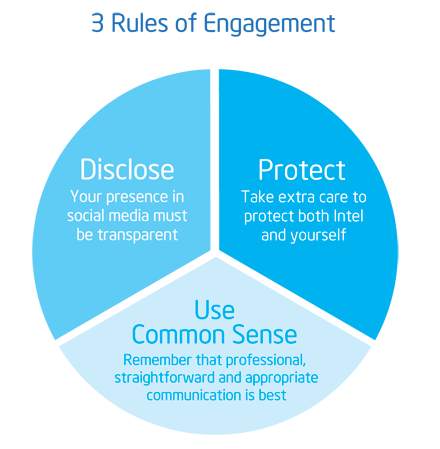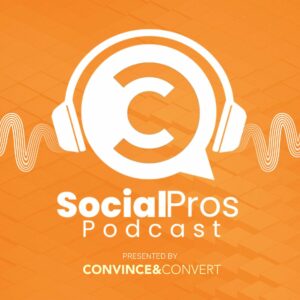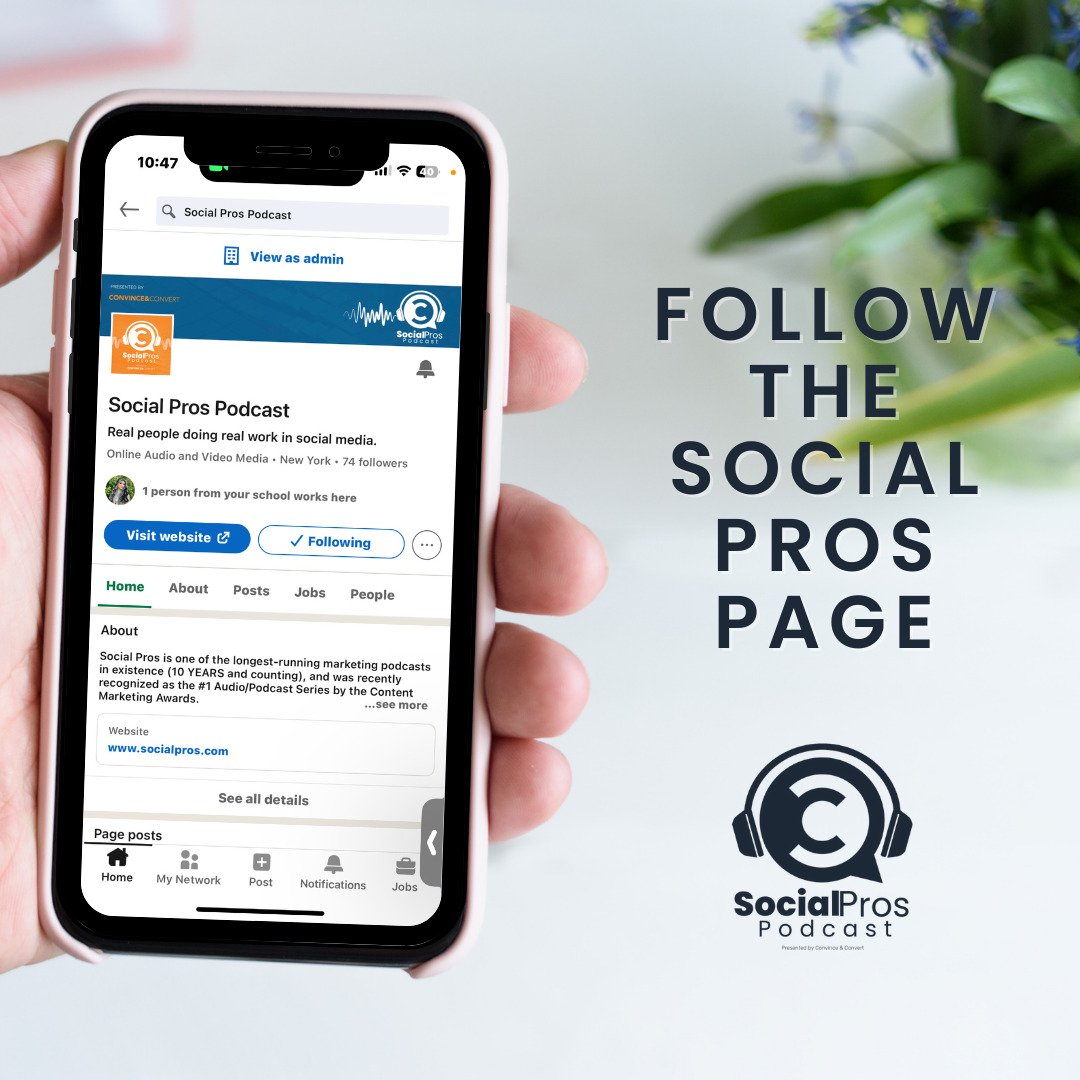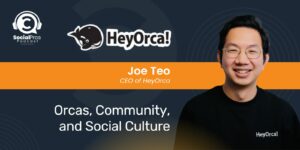Hosted By
About Social Pros Podcast:
Social Pros is one of the longest-running marketing podcasts in existence (10 YEARS and counting), and was recently recognized as the #1 Audio/Podcast Series by the Content Marketing Awards.
Our purpose? Making sure that we speak to real people doing real work in social media.
Listeners get inside stories and behind-the-scenes secrets about how teams at companies like Google, Reddit, Glossier, Zillow, Lyft, Marvel, and dozens more, staff, operate, and measure their social media programs. With 600+ episodes, the Social Pros Podcast brings the humanity of social media to the forefront, while providing incredibly useful marketing strategies that listeners can immediately implement.
Follow Social Pros on LinkedIn.
To inquire about becoming a guest or show sponsor, please email our Executive Producer, Leanna Pham, at leanna@convinceandconvert.com.
Apple Podcast Reviews:
The Social Pros podcast has quickly become a favorite in my feed! I'm consistently impressed by the engaging conversations, insightful content, and actionable ideas. I truly learn something every time I listen!
@Arlie KThis is absolutely an awesome listen for anyone in communications or social media!!
@Will31CThis podcast has become one of my staple weekly podcasts for learning about marketing! Love the conversations that they have and it's always enjoyable and educational!
@Simonstone95Love the podcast - informative, in depth and spot on for any business size.
@MissTriathlon
Ekaterina Walter, author of Think Like Zuck and social innovator for Intel, joins the Social Pros Podcast this week to discuss the future of Facebook, woven-in social media strategy at a multi-national tech powerhouse, and empowering customers through social with that human touch. Read on for some of the highlights or listen below for the full podcast. […]

Ekaterina Walter, author of Think Like Zuck and social innovator for Intel, joins the Social Pros Podcast this week to discuss the future of Facebook, woven-in social media strategy at a multi-national tech powerhouse, and empowering customers through social with that human touch.
Read on for some of the highlights or listen below for the full podcast.
Listen Now
Click the play button to listen here:
[podcast]http://socialpros.podbean.com/mf/web/infpk/SocialProsEpisode46.mp3[/podcast]
Download the audio file:
http://socialpros.podbean.com/mf/web/infpk/SocialProsEpisode46.mp3
The RSS feed is: http://feeds.feedburner.com/socialprospodcast
Find us on iTunes: http://itunes.apple.com/us/podcast/convince-convert-blog-social/id499844469
Please Support Our Sponsors
Huge thanks to data-driven social media management software company Argyle Social for their presenting sponsorship, as well as Infusionsoft, Janrain, and Jim Kukral at DigitalBookLaunch. We use Argyle Social for our social engagement; we use Infusionsoft for our email; Janrain is our crackerjack social integration company, and Jim is our guest host for the podcast (and a smart guy).
Social Pros Highlights For Your Reading Enjoyment, Thanks to Speechpad for the Transcription
Humanizing the Technology that Drives Us
Jay: Obviously, social media is a big deal at Intel and has been for a long time thanks to you and Bryan Rhoads, and other smarties over there. Tell us, if you would, what is the goal for social at Intel? What is the business case?
Ekaterina: Humanizing the brand, connecting with our customers online through multiple conversations, really getting to know them, and just touching their passion points. We’re known to have multiple different customers that are on the business side and the customer side. There are IT thought leaders and executives that all connect with technology, especially with Intel products, at some point.
We’re really looking to build our community through those conversations, and really increasing the share of conversations online about our brand in authentic ways. So, connecting continuing relationships, building our communities on multiple social networks, with Facebook being our biggest one. 15 million fans on our global Facebook page and pretty high engagement, so we’ve been pretty happy with what’s been happening in the past four years on that front.

Jay: You mentioned customers a few times there. Do you look at social as more of a customer retention, loyalty, advocacy play? Or more of a new customer acquisition play?
Ekaterina: I think both. Obviously tactics for both are different, but we already have a very good loyalty base, folks who know our brand, love our brand. But also, those usually tend to be older generation, “Intel Inside”. That’s what they always remember. But also for newer folks who are not that particularly connected to us, and might not know us, or grew up with technology but aren’t really connected to Intel from an emotional standpoint, so more of a younger generation.
We’re looking to connect with them and understand them, and really figure out what makes them tick, how they use technology? What are the important things for them, and what does technology support in their lives that we can potentially help with? So, I’d say both, but definitely number one priority is connecting with those who do know our brand, love our brand, giving them the platform to connect with us.
Eric: You actually brought up one of the things that I was more interested in digging into on this conversation, is this concept of “Intel Inside”. Intel is a product inside of other products, and that’s got to create some challenges for you guys from a marketing standpoint and from a social standpoint. How do you guys breach that gap?
Ekaterina: That’s interesting that everybody brings this up, on the challenge. Even though the tactics might differ – or how we connect with people, what we talked about is slightly different – to me, everybody uses a technology, and everybody who uses a technology is either a current or potential customer.
To me, it’s actually about connecting person to person. What happens really for us – because we don’t sell to, we sell through – one of our key objectives is that we focus on brand awareness and really humanizing the brand. What social allows us to do is put that human touch into all the communications that we have, and then really connect with our customers on a personal level.
Everybody who uses technology is a customer, and everybody who uses technology is probably passionate about it. It doesn’t have to be, “Let’s talk about Intel products.” It can be, “Hey, let’s talk about technology.” We’re all sort of geeks in different kinds of ways, and we connect in different kinds of ways.
Jay: Yeah. I think it’s interesting, you said something there that escapes a lot of marketers in the social world, which is that it’s not about Intel. You make the story bigger. For you, the story is about technology, not necessarily about Intel and its products. That takes courage to say, “Look. We’re going to use a significant amount of company resources to continue conversations with customers and prospective customers that aren’t linearly tied to our own products and services.”
That’s absolutely commendable, and I think that’s one of the reasons why you’ve been so successful is that there are only so many things you can say about your business. You look at something like a Facebook program that has 15 million fans, when people don’t necessarily buy your product’s directly, and you’re not M&Ms or Red Bull, or a consumer product in that particular way. I think it really speaks to the effectiveness of that “make the story bigger” strategy.
Ekaterina: Absolutely, Jay. I think it’s about empowering your customer, too. If you continue to drive, “Here’s my product. Here’s my product,” not much is going to happen. Just like with a personal relationship, you connect on so many levels, and there are so many passion points, so I think identifying those and empowering people is important.
One of the programs we ran earlier this year, Intel Innovators, called for supporting young entrepreneurs who wouldn’t have been heard or seen otherwise. We created a whole platform for them on Facebook to submit their ideas, to get people involved in and rally behind those ideas. To those who are winners we not only say, “Hey, here’s funding to help you make this idea come to life or continue to develop that idea.” But also provide training for those young folks to help them run the business. So it’s beyond just, “Here’s the money. Thank you very much for participating.” It’s how is it going to help them grow? Making the world a better place for technology, and enriching people’s lives with technology and help them rally behind something they are passionate about versus, “Hey, here’s our product. Here’s our product.”
Social Baked Right In
Jay: You have so many things going on in the social space. How is that structured internally? I know you have the Social Media Center of Excellence within the company. But how is social woven through the fabric of Intel? It’s obviously a big company with a lot of people participating.
 Ekaterina: We started about four years ago and had about three people. Now we’re a team of, I think 15, and we have a director running both the social side and the media side. What happened this year is we said, “Listen. We had the Social Media Center of Excellence, and we had paid media. We’ve seen them work separately and we’ve seen them work extremely effectively together.”
Ekaterina: We started about four years ago and had about three people. Now we’re a team of, I think 15, and we have a director running both the social side and the media side. What happened this year is we said, “Listen. We had the Social Media Center of Excellence, and we had paid media. We’ve seen them work separately and we’ve seen them work extremely effectively together.”
So the two teams merged, and we now have a bigger team that’s called the Integrated Media Team. Not a lot of people are doing that, yet. Looking forward, you have multiple media angles and then the way you can engage with your customers is paid, owned, and earned. So, if you look across that, if you marry those different functions, together they’re going to be so much more effective.
The Social Media Center of Excellence started because we wanted to understand how can we take social and weave it into the fabric of everything we’re doing across the company. It automatically has its challenges. We are almost 100,000 people across the world. What we’ve done is we created that as a central function to help our business units and help our teams within the geographies actually build in social, and start thinking about it in the right way, and also support global communities.
We’re saying that the strategic plan is not complete without social being integrated in it, just like paid, traditional media should be integrated and thought through from the start.
So we’ve been specifically social. We have some folks responsible for content, folks who are responsible for metrics and measurements, folks who are responsible for driving our communities internally. Then those who are responsible on innovation and looking forward.
For my role, I’m kind of saying, “We’ve already built the base of communities. We have specific metrics in place. We have specific processes in place. How can we look ahead and figure out what are new and exciting things that we can bring to the table to actually extend those efforts in effective ways?”
Jay: I think it’s wise to segment responsibilities that much. Certainly, it helps to have enough people and enough roles and responsibilities to do that kind of segmentation. But I think you’re going to get better results. People can really focus on one particular dimension of social excellence.
I think we’re at a stage right now where a lot of social media professionals are fraying at the seams, because it’s getting to be such a big, broad job, and a lot of people are still generalists and doing it all or doing most of it within a company. It’s getting a lot harder to be great when you’ve got to do everything yourself.
Ekaterina: That’s a brilliant point because we had an advantage from the start. Because while a lot of brands were still outsourcing and trying to learn social, our leadership was bright enough and aggressive enough to see and hear what’s happening around us and why this is important. We started internally from the beginning, bringing in all of the relevant stakeholders like HR, finance, legal, web team, etc., and saying, “Guys, help us co-develop guidelines. Help us, learn with us.”
Think Like Zuck
Eric: Ekaterina, you talked earlier about a younger generation and entrepreneurship… you’ve got a book that’s coming out fairly shortly that’s about an entrepreneur that has inspired a lot of the interest in entrepreneurship with young folks. What can you tell us about your new book?
Ekaterina: The book is coming out January 15th, and it’s called Think Like Zuck. It basically outlines five key points and a framework of the five secrets that I think a number of successful businesses – small and large – have experienced or established throughout their career that ensured the growth of those companies.

So, Facebook is not the only example. There is Threadless, College Humor – also started by very young entrepreneurs and became successful. So the five keys described in the book are: passion, purpose, people, product, and partnerships.
But to me, those are some of the critical things that I noticed, not only just working for a big brand throughout the career, but also consulting a lot of start-ups, because I was on the advisory board for a number of them. By looking at the history of those companies, as well as the companies that I personally worked with, I just was able to outline and create that framework.
Economy of Now
Jay: Do you think that five years from now that Facebook will still be the powerhouse that it is today? Will it still be the centerpiece of Intel’s social media strategy? Or do you think Facebook itself will change dramatically enough that it will fundamentally alter its place in the social ecosystem?
Ekaterina: The thing with Facebook is you never know. I sure hope so, as a brand. As a person, I’m pretty confident that they will be around.
It’s interesting, we talk about this culture of now, this economy of now. But that also produces this impatience with having the results immediately, and a lot of leaders nowadays, fall into the trap of stakeholder pressure and the pressures of everything else that’s happening around them. I think where Zuck has been really solid is that he knows his purpose and he knows where he is going.
Where he is going and what he is passionate about is connecting the world. So the fact that it changes a lot and it’s really a changing and agile environment, it’s hard for brands. Because, you plan on something and put a budget behind it, and then suddenly Timeline comes in and you go, “Oh, well all my plans, I need to just sort of scratch that and rebuild.”
So in some ways, it’s pretty hard. However, think about this: Intel has never, ever had a community of 20 million across the world. I’m talking about 36 or 37 pages we have across 50 countries to form a community of 20 million people across the world. We’ve never been able to achieve that.
So while it’s kind of hard to predict sometimes where Facebook is going to go, I think we’ve been really happy with building our community on this network. We’ve run wonderful programs. We have dialogue with our customers. It’s really a privilege, and it does require a lot of work. It requires a lot of work to produce actual content to continue to be top-of-mind and in people’s newsfeeds. However, this is a really, really amazing opportunity for us as a brand.
At the end, if you have a passion and have your vision and you stick to them and you have long-term plans, I think, definitely that means that you have a solid strategy long-term. Are there challenges? Absolutely, just like with everybody else. But that’s my idea on it.
Jay: It sounds like an amazing book, and I think you’re exactly right about Facebook is that it requires effort. People want Facebook to be easy and free, and everything else, and it’s not. It requires real effort.
Social Media Stat of the Week: The Science Behind those Obama Campaign Emails
Eric: You set it up perfectly, Jay. You were talking about the desire for social to be fast, and cheap, and easy, and I think that there’s a great counterpoint with email marketing. This week’s stat of the week is actually an amalgamation of email marketing stats.
Businessweek.com published a really detailed piece about the Obama campaign’s email strategy and operations, and it’s pretty astounding the level of intellectual curiosity around the testing that they’ve done and the ruthless data-driven execution. The article has an infographic about one particular email sent on June 26th.

This single email went through 18 test variants before it was sent to all billions of people on the Obama campaign’s email list, and that single email was attributed for $2.6 million in fundraising. It’s really fascinating – especially for people that are interested in data on online marketing – to read how data led the campaign to do counter-intuitive things, such as subject lines that just say, “Hey,” or, “Wow.”
But I think this is relevant for our conversation, in part because I don’t know that I’ve ever seen an article written like this about social media marketing, where there was this deep, deep focus on data and execution that led to this consistent performance. I know it’s happened. I’ve seen anecdotal evidence. But to see something like this about email that is so deep and so detailed really made me think, “Wow. We’ve got a long way to go around social.”
Jay: I think part of the issue there is that we don’t have the technical ability to pre-flight test, to A/B test, to multi-variant test in social the same way that we can in email, which is continuing to annoy me. A/B testing would be incredibly important for people like Intel and people like me, and everything in between. But there really is no reliable way to add that layer of optimization to the majority of the social web.
So, I think the reason why you don’t see much of that thought leadership is that it’s impossible to derive. Folks like PageLever and other people who have access to rich, API data will sometimes put together content that approximates that sort of thinking, but we’re just not there yet. I certainly hope that we get there.
Social Pros Shoutout
Ekaterina: There are a couple of people that have been doing amazing work that I’ve been following recently. One of them is Jure Klepic. He’s been doing a lot of writing. He writes on his own blog. He writes for Huffington Post, and a number of other places. He’s been recently focusing a lot on influence, influence tools, and what that means. Really, taking a hard stand on “is this an influence or is this popularity.” So I really hope you guys check out some of his contributions.
On the brand side, I would give a shout out to Jessica Gioglio of Dunkin’ Donuts. She has built and continues to maintain amazing communities from a social perspective, not only on her Facebook page, but on Pinterest and a lot of other social networks. Dunkin’ is doing a lot of things with visual, really engaging their customers in very smart ways.
I don’t think they get enough recognition, or at least Jessica doesn’t for the work that she is doing. She’s just amazing and really pinpointing the passion points of the customer and engaging them in a way that produces a lot of organic love for Dunkin’ Donuts through the social network.
Ekaterina: I’ll also call out a couple of other people: Vala Afshar for example. He’s the CMO of Seimens Enterprise and he’s a recently published author. He’s doing a lot in social space, just from a personal perspective of how he’s engaging with folks on Twitter and Facebook and other social networks, and kind of really helping out. Talking about leadership, talking about how social enterprise can really help your business grow and what does it take to become a social enterprise? I really love his posts. He’s sort of a visionary on several of those topics on leadership and social and driving through impact.
Jay: Thanks so much for the time. We really appreciate you being a part of Social Pros. Mr. Boggs, who do we have on the show next week?
Eric: Mr. Erik Deckers from Pro Blogging Service.
Jay: Great guy actually, an Indiana boy. Mr. Decker is also the co-author with Jason Falls of No Bullshit Social Media, and the co-author with Kyle Lacy of Branding Yourself.
See you next week!







